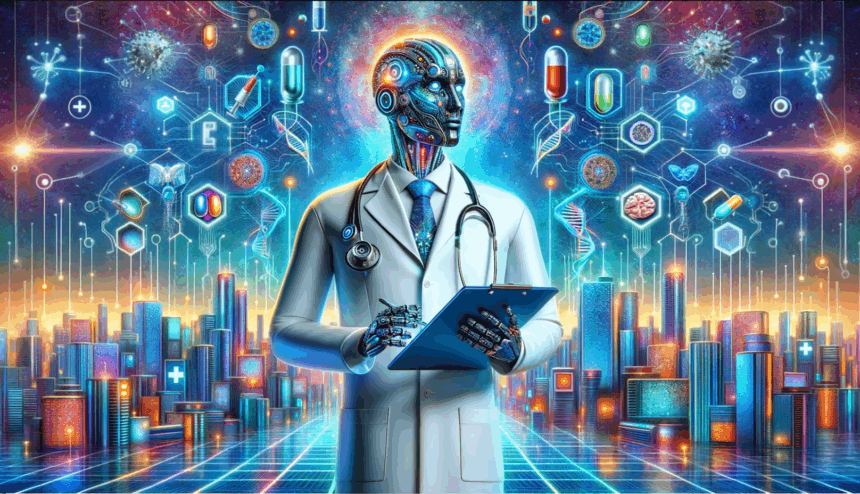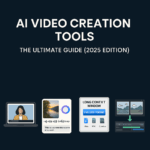Artificial intelligence (AI) is no longer a futuristic concept in medicine—it is a reality that is reshaping the healthcare industry worldwide. Over the past decade, AI in healthcare innovations has advanced from experimental algorithms to real-world applications that improve diagnostics, treatment planning, patient monitoring, and hospital operations.
In 2025, AI stands at the heart of transformational change in global healthcare. From AI-powered diagnostics that detect diseases earlier and more accurately than humans, to personalised treatment pathways built on predictive analytics, the integration of artificial intelligence in healthcare is driving both efficiency and better patient outcomes.
The adoption of AI tools is not limited to advanced hospitals or research institutions. Today, startups, biotech companies, telemedicine providers, and even local clinics are embracing AI applications in healthcare to reduce costs, enhance accessibility, and save lives. This shift is supported by breakthroughs in machine learning, natural language processing, computer vision, and robotics—technologies that collectively power a new era of smart healthcare.
In this article, we will explore the key innovations of AI in healthcare, covering applications in diagnostics, surgery, drug discovery, patient care, and healthcare administration. We will also examine the benefits, challenges, and industry trends that are shaping the future of AI in medicine.
Key Applications of AI in Healthcare
Artificial intelligence in healthcare goes far beyond theoretical models. In 2025, it is actively used in diagnostics, treatment planning, drug development, robotic surgery, and patient monitoring. Below are some of the most impactful applications shaping the future of medicine.
AI in Medical Diagnostics
One of the most important AI applications in healthcare is in diagnostics. AI algorithms, particularly those using deep learning and computer vision, are able to analyze medical images such as X-rays, MRIs, and CT scans with a level of accuracy that often surpasses human radiologists.
- Radiology & Imaging: AI tools detect tumors, fractures, and anomalies faster, reducing delays in diagnosis.
- Pathology: Machine learning models analyze biopsy samples to identify cancerous cells with higher precision.
- Dermatology: AI apps now scan skin lesions and predict the likelihood of conditions such as melanoma.
Impact: Earlier detection of diseases improves treatment success rates and reduces healthcare costs.
AI in Personalized Medicine
The concept of one-size-fits-all treatments is being replaced by personalised medicine, where AI analyses genetic profiles, lifestyle data, and medical history to tailor therapies for individual patients.
- Predictive Analytics: AI models identify patients at risk of chronic diseases like diabetes or heart failure.
- Genomics: AI interprets genetic data to guide treatments in oncology and rare diseases.
- Treatment Optimisation: Algorithms recommend the best drug combinations for a patient’s unique biology.
Impact: Patients receive treatments that are more effective, with fewer side effects.
AI in Drug Discovery and Development
Drug discovery has historically been slow and expensive. With AI, companies are cutting years off the process.
- Molecule Screening: AI models predict how potential compounds will interact with biological targets.
- Clinical Trials: AI identifies suitable participants and predicts trial outcomes with better accuracy.
- Repurposing Drugs: Existing drugs are quickly re-evaluated for new treatments.
Impact: Faster development of medicines reduces costs and brings life-saving drugs to patients sooner.
AI in Surgery and Robotics
AI and robotics are transforming surgery into a more precise, minimally invasive, and safer practice.
- Surgical Robots: Guided by AI, robots assist surgeons with delicate tasks, improving precision.
- Real-time Guidance: AI overlays surgical data onto imaging systems, helping doctors avoid errors.
- Post-Surgical Monitoring: AI tools assess recovery data to prevent complications.
Impact: Reduced hospital stays, fewer surgical errors, and faster patient recovery.
AI in Patient Care and Monitoring
AI extends care beyond the hospital by tracking patients continuously through wearable devices and smart health platforms.
- Wearables: Devices measure heart rate, oxygen levels, glucose, and transmit data to healthcare providers.
- Virtual Assistants: AI chatbots assist patients with medication reminders and symptom tracking.
- Remote Monitoring: Chronic patients are managed at home, reducing hospital readmissions.
Impact: Improved patient outcomes, reduced strain on hospitals, and greater accessibility to healthcare services.
Benefits of AI in Healthcare
The rise of artificial intelligence in healthcare is driven by the clear benefits it provides to patients, doctors, and healthcare systems. From improving diagnostic accuracy to reducing costs, AI is delivering value at every stage of the medical journey.
1. Faster and More Accurate Diagnoses
AI systems can analyze medical images, genetic data, and patient records far quicker than humans.
- Radiology tools detect anomalies within seconds.
- AI models identify early-stage cancers that might be missed by human eyes.
- Predictive analytics highlight patients at risk of chronic conditions before symptoms appear.
Result: Earlier interventions improve survival rates and reduce the need for costly emergency treatments.
2. Cost Reduction for Healthcare Systems
Healthcare has long been burdened with rising costs. AI helps reduce expenses by:
- Automating repetitive tasks like appointment scheduling and medical coding.
- Optimising hospital resources by predicting patient admissions.
- Lowering research and drug discovery costs with AI simulations.
Result: Hospitals and governments can redirect resources toward patient care instead of administration.
3. Improved Patient Experience
AI-powered assistants and monitoring tools make healthcare more personal, responsive, and accessible.
- Chatbots answer FAQs and provide medication reminders.
- Wearable devices track vital signs and alert doctors to irregularities.
- Personalised treatment plans reduce side effects and improve recovery times.
Result: Patients feel more supported and engaged in their own healthcare journey.
4. Accessibility in Remote and Underserved Areas
AI bridges the healthcare gap for communities lacking specialists or advanced facilities.
- Telemedicine platforms use AI to support remote consultations.
- Mobile apps with AI-driven diagnostics extend healthcare to rural areas.
- Cloud-based AI platforms share knowledge across global healthcare networks.
Result: More people gain access to quality care, reducing inequalities in healthcare delivery.
5. Enhanced Research and Innovation
AI accelerates the pace of medical research.
- Drug discovery pipelines are shortened from years to months.
- Genomic research identifies disease markers more efficiently.
- Large datasets are analyzed to discover patterns invisible to human researchers.
Result: Faster breakthroughs in treatments and preventative medicine.
Challenges and Ethical Considerations of AI in Healthcare
While the benefits of AI in healthcare innovations are undeniable, the technology also presents significant ethical, regulatory, and practical challenges. To fully unlock the potential of artificial intelligence in healthcare, policymakers, clinicians, and developers must address these issues with caution and responsibility.
1. Data Privacy and Security
Healthcare data is among the most sensitive information a person can share. AI systems require access to vast amounts of patient data to function effectively.
- Risks: Data breaches, cyberattacks, and unauthorized sharing of personal health records.
- Regulations: Compliance with laws such as HIPAA (USA) and GDPR (Europe) is essential to protect patient confidentiality.
- Challenge: Balancing the need for large datasets with strict privacy requirements.
2. Bias in AI Algorithms
AI systems are only as unbiased as the data they are trained on.
- Issue: If training data underrepresents certain populations, AI may deliver less accurate results for women, minorities, or low-income groups.
- Example: An algorithm trained primarily on Western datasets may fail to recognize symptoms common in Asian or African populations.
- Impact: This can worsen healthcare inequalities instead of reducing them.
3. Regulatory and Legal Hurdles
The rapid pace of AI innovation has outstripped traditional regulatory frameworks.
- Challenge: Regulators must decide how to approve and monitor AI-driven diagnostics, treatments, and medical devices.
- Legal Concerns: Questions remain over liability — if an AI misdiagnoses a patient, who is responsible: the doctor, the hospital, or the software provider?
- Solution Needed: Clear global standards and certifications for AI in healthcare.
4. Over-Reliance on Automation
AI can process data at lightning speed, but it cannot replace human judgment.
- Risk: Physicians may become overly dependent on AI recommendations.
- Consequence: If AI makes an error, it could go unchecked without human oversight.
- Best Practice: AI should serve as an assistant, not a replacement, ensuring that clinicians remain the final decision-makers.
5. Ethical Concerns Around Human Interaction
Healthcare is not just about data — it is about empathy and trust.
- Concern: Overuse of AI chatbots and virtual assistants could depersonalize patient care.
- Balance: Patients still value the human touch, especially in sensitive areas like mental health, end-of-life care, or complex diagnoses.
AI in Healthcare Industry Trends (2025 and Beyond)
As we move deeper into 2025, AI in healthcare innovations are accelerating at an unprecedented pace. The industry is not only adopting AI tools but also reimagining how healthcare will look in the next decade. Below are some of the most important trends shaping the future.
1. Integration of AI with Big Data and Cloud Systems
Healthcare providers are generating enormous volumes of data — from electronic health records (EHRs) to genomic sequencing.
- AI systems are now integrated with cloud platforms to handle massive datasets securely.
- Predictive analytics powered by AI and big data are helping hospitals forecast patient admissions, disease outbreaks, and resource allocation.
Trend: Healthcare is shifting toward a data-driven ecosystem where AI continuously learns from global health information.
2. AI + IoT in Remote Patient Monitoring
The Internet of Things (IoT) combined with AI is transforming patient monitoring outside hospitals.
- Wearables track vital signs in real time.
- AI algorithms analyze the data to detect anomalies before they become emergencies.
- Hospitals use IoT + AI dashboards to monitor thousands of patients simultaneously.
Trend: Chronic disease management and elderly care are moving from hospitals to homes, supported by smart AI-enabled devices.
3. Expansion of AI in Preventive Healthcare
AI is not just for treating illness — it’s increasingly used for prevention.
- Algorithms analyze lifestyle and genetic data to provide personalized wellness plans.
- AI-driven apps encourage healthier habits through nudges and recommendations.
- Predictive models highlight early warning signs of cardiovascular disease, diabetes, or mental health issues.
Trend: The healthcare industry is pivoting toward proactive health management, reducing the burden of preventable diseases.
4. Global Adoption and Democratization of AI Tools
While AI in healthcare started in advanced hospitals, by 2025 it is spreading globally.
- Emerging economies are adopting affordable AI diagnostics to compensate for shortages of doctors.
- Telemedicine platforms powered by AI are reaching rural and underserved populations.
- Open-source AI models are lowering barriers for small startups in healthcare innovation.
Trend: AI is becoming a universal healthcare tool, reducing global health inequalities.
5. Regulatory Evolution and Ethical AI Frameworks
Governments and international organizations are creating clearer guidelines for AI use.
- The FDA, EMA, and WHO are working on AI certification standards.
- Ethical frameworks emphasize fairness, accountability, and transparency in AI decision-making.
- Hospitals are forming AI ethics boards to oversee implementation.
Trend: The industry is moving toward responsible AI in healthcare, balancing innovation with trust.
FAQs About AI in Healthcare Innovations
1. What is AI in healthcare innovations?
AI in healthcare innovations refers to the use of artificial intelligence technologies—such as machine learning, natural language processing, and robotics—to improve medical diagnostics, patient care, drug development, and hospital management. These innovations are transforming how healthcare providers deliver treatments and manage resources.
2. How is artificial intelligence used in healthcare?
Artificial intelligence in healthcare is used for:
- Medical diagnostics (detecting diseases through imaging and pathology).
- Drug discovery (predicting molecule interactions and reducing trial times).
- Personalised medicine (designing treatments based on genetics and patient data).
- Surgical robotics (increasing precision during operations).
- Patient monitoring (using wearables and predictive analytics).
3. What are the benefits of AI in healthcare?
The benefits of AI in healthcare include:
- Faster, more accurate diagnoses.
- Lower treatment costs.
- Improved patient outcomes and personalised care.
- Better resource allocation in hospitals.
- Increased accessibility of healthcare in remote areas.
4. Can AI replace doctors in the future?
No. AI is not designed to replace doctors but to support them. While AI can process vast amounts of medical data and suggest diagnoses or treatments, human expertise, empathy, and judgment remain irreplaceable in patient care.
5. How accurate is AI in medical diagnostics?
In many cases, AI in medical diagnostics has shown equal or higher accuracy rates than human specialists. For example, AI can detect early signs of cancer, heart disease, or eye conditions with remarkable precision. However, human oversight is essential to ensure context and ethical decision-making.
6. What are the challenges of using AI in healthcare?
Some key challenges include:
- Data privacy risks (protecting patient records).
- Algorithm bias (ensuring fairness across demographics).
- Regulatory hurdles (certification of AI medical tools).
- Over-reliance risks (ensuring doctors verify AI recommendations).
7. How will AI transform healthcare by 2030?
By 2030, AI is expected to:
- Enable fully personalised treatment plans.
- Integrate with IoT and wearable devices for proactive monitoring.
- Accelerate the discovery of new drugs and therapies.
- Reduce healthcare inequalities globally by providing affordable diagnostics.
Conclusion
The role of AI in healthcare innovations has expanded from theoretical research to practical, life-saving applications. In 2025, artificial intelligence is driving a new era of medicine — from medical diagnostics and personalised treatments to robotic surgery, drug discovery, and real-time patient monitoring.
The benefits are clear: faster diagnoses, lower costs, better patient experiences, and broader accessibility, even in underserved regions. At the same time, challenges remain — including data privacy, algorithmic bias, regulatory frameworks, and the need to balance automation with human expertise.
Looking ahead, AI in healthcare industry trends point toward deeper integration with big data, IoT devices, and cloud-based platforms, making healthcare smarter, predictive, and more preventive. Importantly, AI will not replace doctors but will continue to act as a powerful partner, enhancing their decision-making and improving outcomes for patients worldwide.
Healthcare is on the cusp of transformation, and AI stands at the centre of this evolution. By 2030, innovations in artificial intelligence will redefine how medicine is practiced, researched, and delivered across the globe.
For more insights into the future of AI across industries, visit our homepage at Ai Of The Decade.











